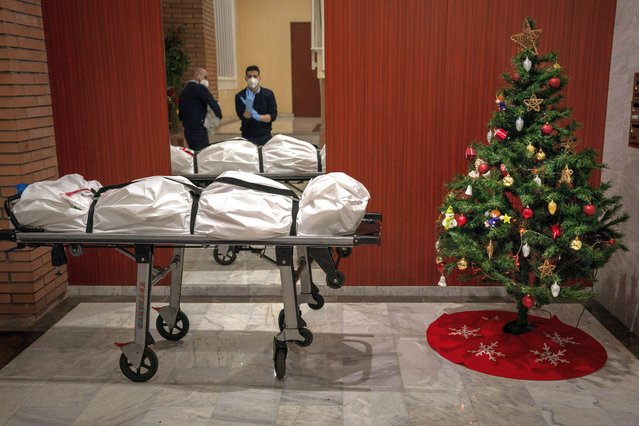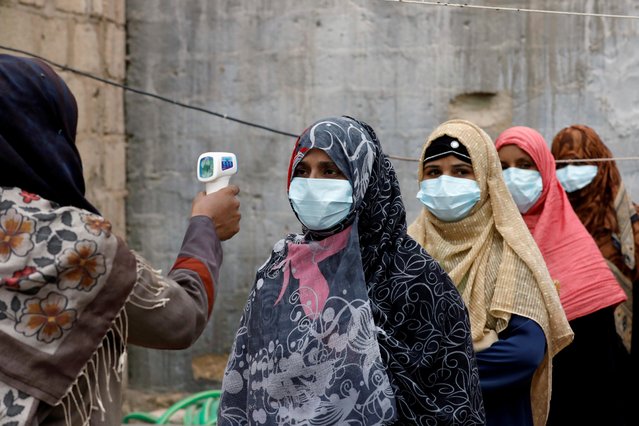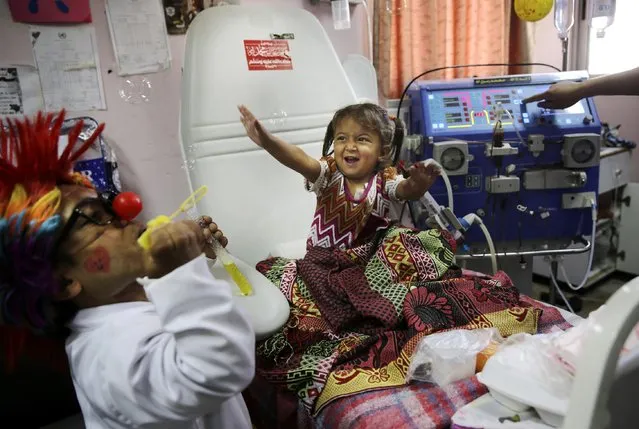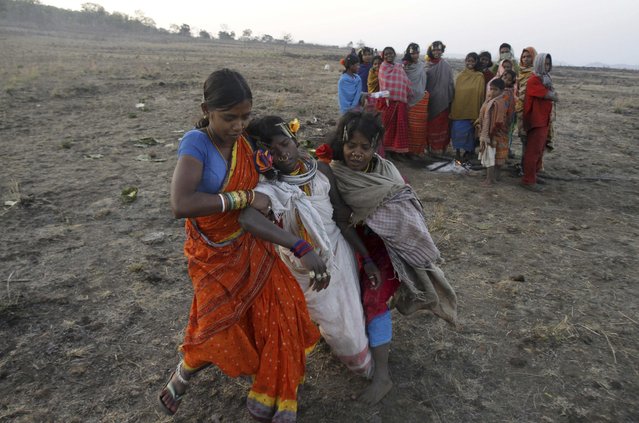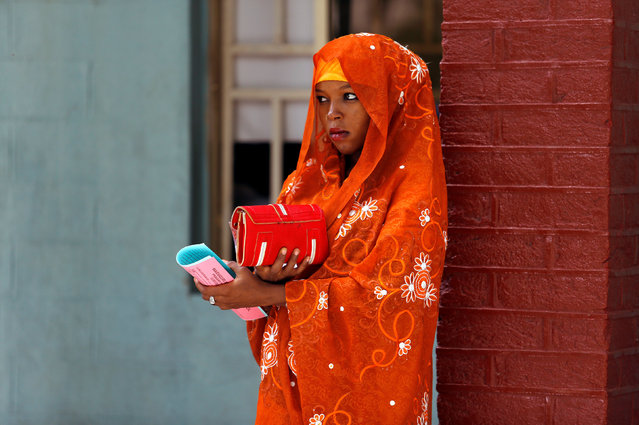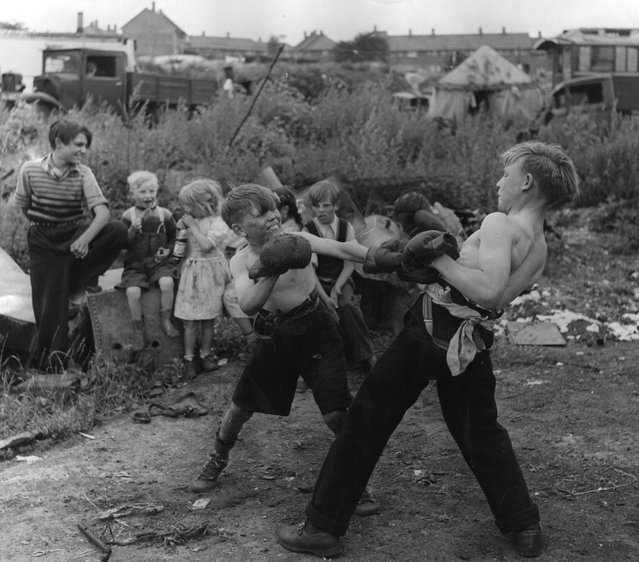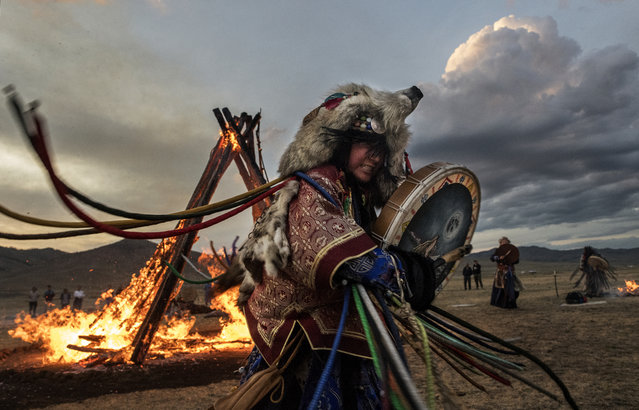
Majesty Davis, 3, cries while visiting Santa Claus, who sits behind a plexiglass divider due to the coronavirus disease (COVID-19) pandemic, at the Willow Grove Park Mall in Willow Grove, Pennsylvania, U.S. November 14, 2020. (Photo by Mark Makela/Reuters)
10 Dec 2020 00:03:00,post received
0 comments

